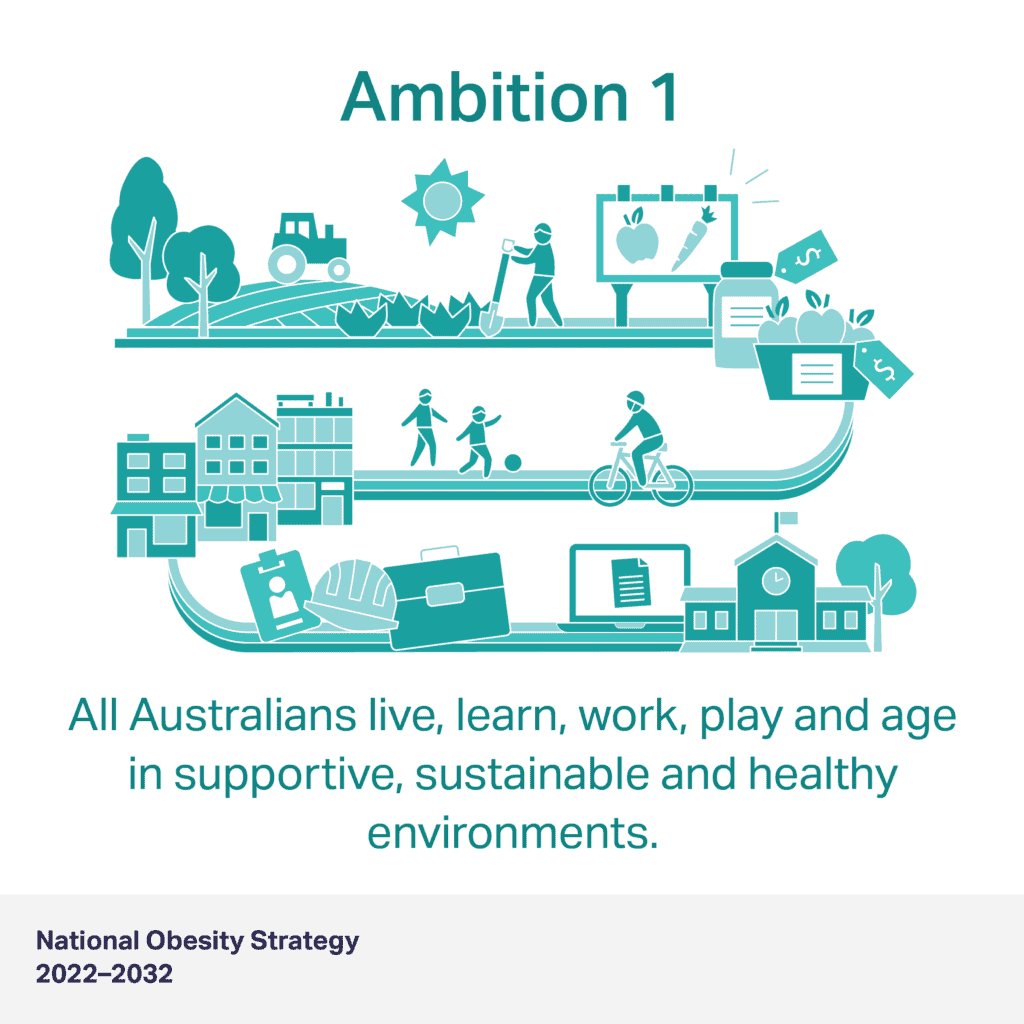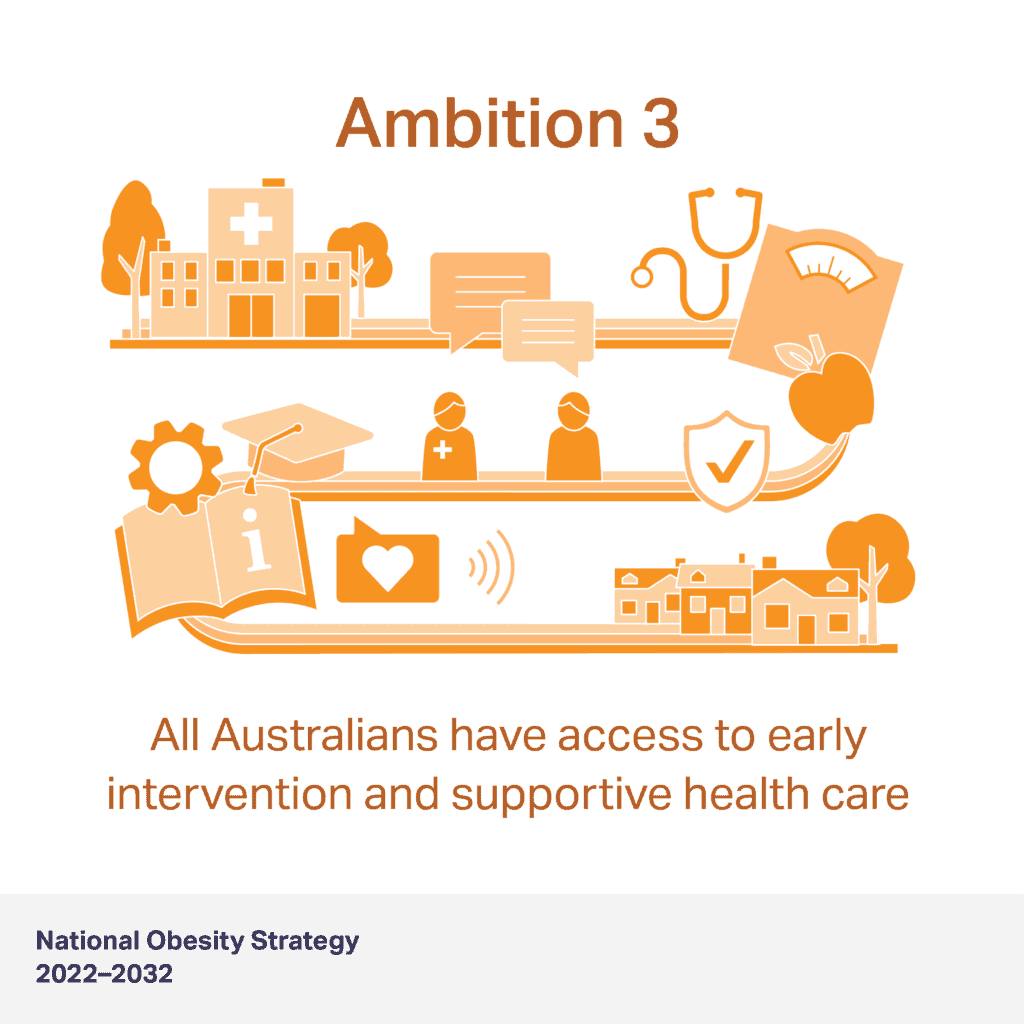Health and Wellbeing Queensland (HWQld) is leading Queensland’s implementation response to the National Obesity Strategy 2022-2032 (NOS), released in March 2022.
We are developing the Making Healthy Happen Strategy (2023-2032) (working title) and a series of Action Plans.
The Strategy was previously known as the Queensland Obesity Prevention Strategy. The title, ‘Making Healthy Happen’, was chosen during extensive consultation for the Strategy in a bid to reduce the harmful stigma associated with terminology relating to the terms of ‘weight’ and ‘obesity’.












